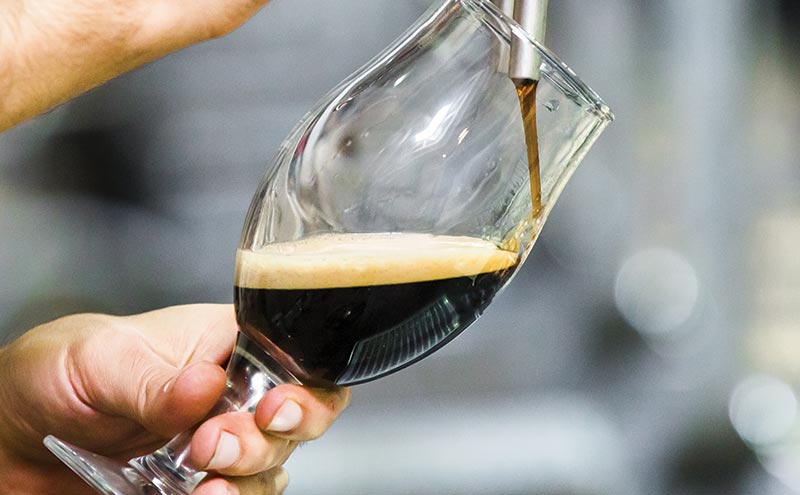Publicans urged to regulate the temperature of their beers as mercury falls
WHEN the temperature plummets, it can be easy for publicans to forget about the impact winter has on their cellars.
But specialist firms have stressed that maintaining the correct temperature in the beer cellar is hugely important to maintaining standards and avoiding wastage.
Richard Cooper, managing director of Clear Brew Glasgow North, warned the quality of the product will suffer if it is not properly looked after.
“Cellar temperature should be between 11 and 13 degrees centigrade at all times of the year,” said Cooper.
“If the temperature falls outside this range the quality of your draught products will suffer and you will lose money through wastage and loss of custom.
“Good cellar temperature control systems will keep your cellar at the correct temperature, regardless of whether it’s warm or cold outside.

“However, if your air-con only does cooling you will have to monitor the temperature regularly and heating may even be required during a cold spell.
“Remember, beer is a foodstuff and the correct storage temperature is critical.”
Cooper, whose firm covers areas including Glasgow, Edinburgh and Aberdeen, said cask ale is particularly susceptible to colder temperatures.
But he also claimed communication is vital during busy periods when more staff are accessing the cellar and critical maintenance tasks can be missed.
“Good cellar management practices, and communicating them to your staff, should be a year round commitment,” he said.
“Make sure you have a routine; for example a set day for beer line cleaning and general cellar management tasks – make sure this is scheduled and not just ‘when we get the chance’.
“These are critical tasks and letting them slip can be costly, both in terms of time you won’t have on a busy night and in terms of wastage from poorly maintained products.”
Cooper suggested writing a checklist for general maintenance tasks including checking the gas levels, coolers and keg dates.
Staff with access to the cellar, he said, should be trained to understand cellar management practices and how vital they are.
He added that operators should consider working with third party firms, especially during busy periods when time is limited.
“Don’t be shy about asking for help,” he said.
“Think about sub-contracting some aspects to a trained third party.
“This will not only free up much needed time and improve quality and consistency, but often brings a useful external viewpoint to your processes.”
Hance McGhie, director at cellar management firm LineCleanse, agreed that temperature regulation is vital during colder months.
“There are cooling systems on the market that will control the temperature, no matter how hot or cold it is outside,” said McGhie.
“One in particular draws cool air from outside when it reaches ten degrees, thus saving electricity too as it turns off the coolers. It can also output warmer air in case of a cold snap.
“In addition ensure all coolers are maintained.”
McGhie’s Newcastle-based firm has developed a system where publicans only have to clean their cellar lines every four to six weeks.
This, he claims, can save on manpower, has no impact on beer quality and reduces the regularity of what he described as a “thankless and costly” task.
“Lines are cleaned with eco-friendly powder, left overnight then flushed through in the morning,” said McGhie.
“If timed right this could mean they clean the lines just at the start of the party season and won’t need to worry until it’s all over; not only have they served good quality beer but have also saved on the wastage.”
[hr]
Tips for top quality beer
• Clean the cellar from top to bottom.
• Clean the beer lines thoroughly.
• Clean the keg couplings thoroughly.
• Clean the sparklers with cleaner not soda water.
• Ensure coolers are serviced and producing the correct temperature.
• Ensure rotation of stock is adhered to, so no out of date beer is served.
• Keep doing all above on a regular basis.
– Hance McGhie, LineCleanse























